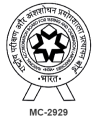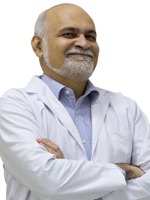The Neurology Department at Holy Family Hospital has a long-standing tradition of excellence in providing comprehensive care for patients with neurological disorders. Established as one of the oldest neurology departments in the city, we offer advanced treatment options. Whether addressing common neurological concerns such as headaches and seizures or more complex conditions like stroke, dementia, and neurodegenerative disorders, our specialists are equipped to provide the highest level of care.
With a team of highly experienced senior neurologists, the department provides 24x7 emergency services, outpatient consultations, inpatient care, and specialized neuro-rehabilitation, ensuring patients are supported throughout their healthcare journey. We are committed to delivering compassionate, personalized care that addresses the unique needs of each patient.
We provide a comprehensive range of specialized treatments for various neurological disorders, ensuring personalized and compassionate care.
- Stroke Care & Management: Comprehensive care and precise treatment for stroke patients, including thrombolysis and mechanical thrombectomy for acute stroke management. Our team ensures rapid diagnosis and treatment to minimize long-term effects.
- Seizure & Epilepsy Treatment: Advanced diagnostic and treatment protocols for patients suffering from epilepsy, including options like Deep Brain Stimulation for those with medically resistant epilepsy.
- Neurodegenerative Disorders: Expert care, long-term management and treatment options for conditions like Parkinson’s Disease, dementia, and other neurodegenerative diseases, with an emphasis on improving the quality of life for patients and providing support services for their families.
- Neuromuscular Disease Treatment: Specialized care, diagnosis and treatment for conditions affecting the nerves and muscles, providing treatments like Botox injections for spasticity and plasmapheresis for immune-mediated conditions.
- Childhood Neurological Disorders: Expertise in diagnosing and managing a range of pediatric neurological conditions, ensuring early diagnosis and treatment to support a child’s development and well-being.
- Palliative Care & Rehabilitation: We provide ongoing support for patients with chronic neurological conditions, offering rehabilitation services and connections to specialized care organizations for both children and adults.
We utilize advanced diagnostic and therapeutic procedures to effectively evaluate and treat neurological conditions, including:
- Nerve Conduction Studies (NCS) and Electromyography (EMG): Crucial diagnostic tools to evaluate the health of nerves and muscles, helping to diagnose conditions like peripheral neuropathy, myopathy, and motor neuron diseases.
- Evoked Potential Studies: The tests Includes Visual Evoked Potential (VEP), Auditory Brainstem Evoked Potential (ABEP), and Somatosensory Evoked Potential (SSEP), used to evaluate the electrical activity in the brain, helping diagnose multiple sclerosis and other disorders.
- EEG Monitoring: Performed both in outpatient and ICU settings, EEG helps monitor brain activity in real-time to detect conditions like epilepsy, encephalitis, and brain dysfunction.
- Botulinum Toxin Injections: Effective for conditions such as dystonia, chronic migraines, and spasticity, providing significant relief and improved mobility for affected patients.
- Nerve & Muscle Biopsy: Essential for diagnosing neuromuscular disorders, these procedures aid in developing accurate treatment plans for complex conditions.
Our Neurology Department is equipped with latest diagnostic and therapeutic tools to ensure accurate diagnosis and effective treatment:
- Advanced Electrophysiology Lab: Our lab offers a full range of electrophysiological tests, including nerve conduction studies, EMG, and evoked potentials, which are critical in diagnosing neurological conditions.
- Portable EEG Machines: We use portable EEG equipment for real-time brain monitoring in the Intensive Care Unit (ICU), aiding in the diagnosis and management of conditions like encephalitis and severe brain dysfunction.
- Stroke Care Facilities: We are equipped with modern facilities to provide thrombolysis and mechanical thrombectomy, ensuring timely and effective intervention for stroke patients.
- Neuro-Rehabilitation Services: Our hospital offers comprehensive rehabilitation programs for patients recovering from strokes, spinal cord injuries, and other neurological disorders, helping them regain independence and improve their quality of life.
- Partnerships with Specialized Organizations: We collaborate with organizations like ARDSI (Alzheimer and Related Disorders Society of India) and Samvedna to provide extended support for patients with neurodegenerative conditions, offering home-based care, psychosocial support, and access to specialized services. For children with learning or physical disabilities, we partner with Aadi (formerly Spastic Society) and NIPCCD to provide specialized support.
Our Neurology Department is led by a dedicated group of experienced doctors committed to delivering exceptional patient care.




